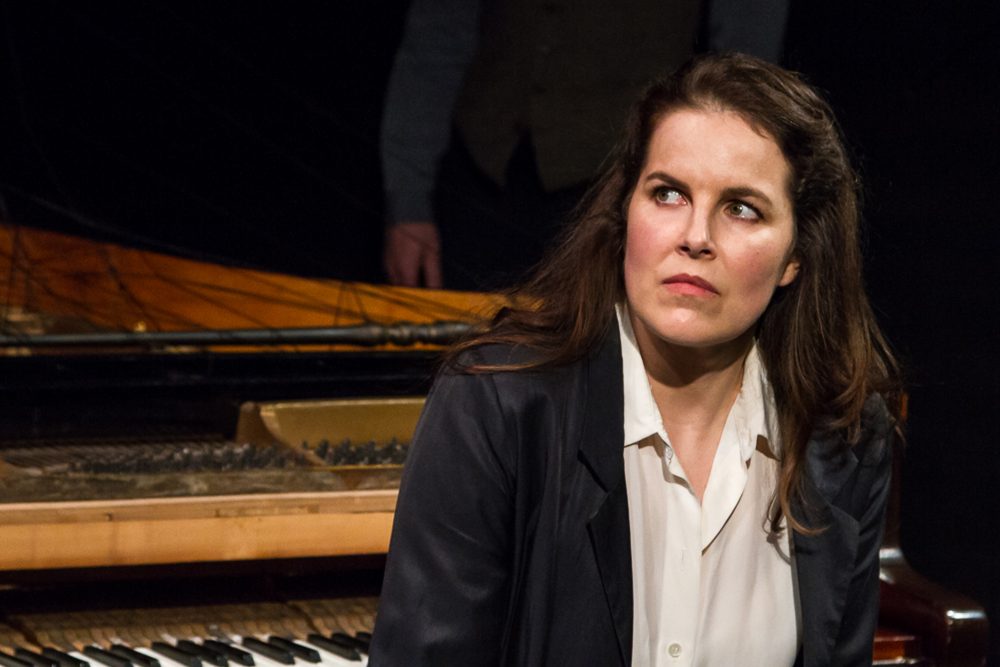While many plays attempt to investigate what makes us human, Nick Payne’s Incognito, directed by Ella Caldwell and Brett Cousins, has the distinction of approaching these subjects on new, unfamiliar ground. The sprawling narrative takes place over multiple continents and decades with one constant: the Human Brain. Incognito uses neurophysiology as a gateway to discuss humanity, purpose and the unexplained phenomena of consciousness. The play opts for an unconventional non-linear sequence of events, telling three stories: an amnesiac named Henry who undergoes a life-changing surgery, the theft of a unique object by neuroscientist Thomas Harvey and the personal struggles and anxieties that a neuropsychologist, named Martha, has to endure.
Like the intricately detailed, yet minimalist set, filled with twine crossing and merging, these narratives pass and converge, creating a uniquely fascinating experience that leaves viewers seeking connections that providing a relationship between the anthologies.
Initially the lack of relation and constant shift between narratives feel arbitrary and directionless. The first fifteen minutes played out at a somewhat awkward and jolted pace, not helped by the small and cramped space that seems to limit the actors expressiveness.
Similarly, the actors felt as though it took them a few scenes to really click into gear. Some of the early chemistry feels forced and scenes lack an energy that is to positively radiate later. The first scene, for reasons that are made clear later, bombards you with an immense amount of exposition shoved into a limited amount of time, which comes off as expedient and clumsy. As the production proceeds, the performances become nuanced and highly focused, with blank spaces in the narrative slowly but surely filling themselves in.

Ben Prendergast, Kate Cole, Jing-Xuan Chan and Paul Ashcroft all display incredible levels of versatility and range in their performances. 21 roles are shared between the four actors, and each character feels like an entirely different person, with different habits, gaits, postures and most importantly, accents. It’s not surprising that Dialect Coach Jean Goodwin features so prominently on the program, as the production’s main way delineating characters and places is through the actors accents.
The set design is less a representation of place and more an invitation into the minds of these characters. Scattered throughout the set are antiquated light bulbs which dim and brighten individually, leaving the theatre sometimes bathed in blinding light, and at other times shrouded in complete darkness. It is absurd but remarkably beautiful, as its role in the story becomes clearer and clearer, culminating in a wonderful moment of euphoria seconds before the production ends.
For its investigation and exploration of the human brain, Incognito doesn’t end providing any answers, but nor does it set out to. Instead, it presents individuals with separate beliefs and experiences, and asks audiences to determine their own stances on the subject matter. Incognito interrogates and questions beliefs, provoking a discussion about mental health and the power of the mind that transcends the physical space of the theatre.
Incognito is now showing at Red Stitch Actor’s Theatre until 13 August. Tickets can be purchased here: http://redstitch.net/gallery/incognito/

